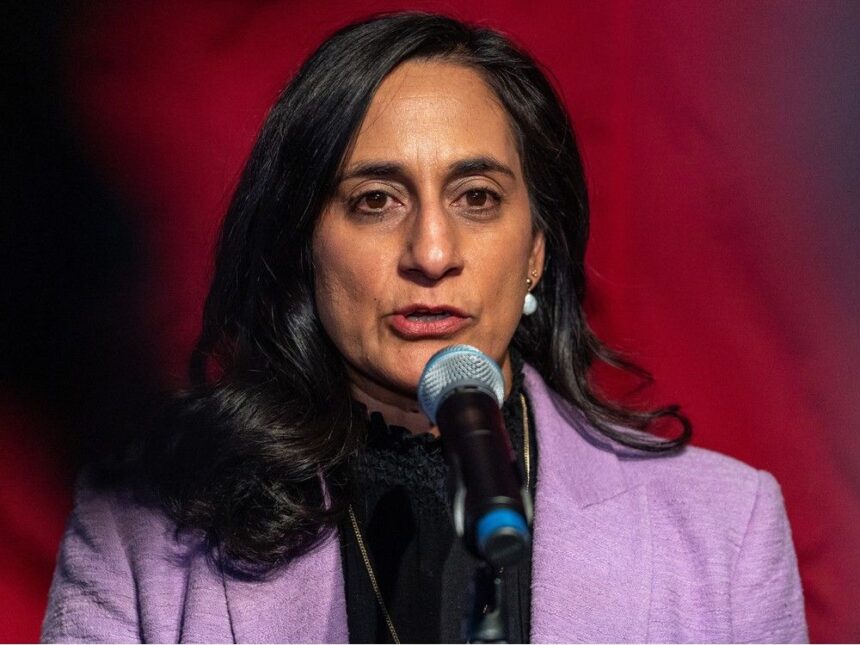In a rapidly escalating Middle Eastern conflict that has global powers on high alert, the Canadian government has launched emergency evacuation efforts for citizens caught in the crossfire between Israel and Iran. As tensions reach a boiling point following Iran’s unprecedented missile attack on Israel, Ottawa is scrambling to ensure the safety of thousands of Canadians in the region.
“We’re actively monitoring the situation hour by hour,” Foreign Affairs Minister Mélanie Joly announced Tuesday, confirming that multiple evacuation flights have been arranged from Tel Aviv. “The safety of Canadians remains our absolute priority as regional tensions continue to escalate.”
The first Canadian evacuation flight departed Tel Aviv on Sunday with approximately 130 passengers aboard, while a second aircraft left Monday with close to 150 citizens. Defence Minister Anita Anand revealed that additional flights are being organized as demand continues to grow amid the uncertainty.
This evacuation operation follows Iran’s launch of over 300 missiles and drones toward Israel on April 13—an attack unprecedented in scale that has fundamentally altered the regional security landscape. Though most projectiles were intercepted by Israeli and allied forces, the psychological impact has triggered widespread fear of further escalation.
The Canadian government estimates that approximately 1,100 Canadians in Israel and 700 in Lebanon have registered with Global Affairs Canada, though officials acknowledge actual numbers are likely higher. Many dual citizens maintain residences in the region but haven’t formally registered their presence with Canadian authorities.
“We’re urging all Canadians in the region to register immediately with our consular services,” emphasized Anand during a press briefing. “This allows us to maintain direct contact and provide critical updates as the situation evolves.”
The federal government has allocated military aircraft and personnel to support the evacuation efforts, with Canadian Forces members stationed strategically throughout the region. The operation mirrors similar initiatives by other Western nations, including the United States and various European countries, who are also extracting their citizens from potential danger zones.
Prime Minister Justin Trudeau has called for immediate de-escalation while working with G7 partners to prevent the conflict from spiraling into a regional war. “The human cost of further escalation would be catastrophic,” Trudeau stated during an emergency cabinet meeting. “We’re leveraging every diplomatic channel to urge restraint.”
For Canadians with family members in the region, the evacuation process has been emotionally taxing. Sarah Levinson, whose parents were on Monday’s flight from Tel Aviv, described the experience as “terrifying.”
“My parents have lived in Israel for over a decade, and this is the first time they’ve felt they needed to leave,” Levinson told CO24. “The uncertainty of whether Israel will retaliate against Iran and what form that might take has everyone on edge.”
Economic implications are also mounting as oil prices surge amid fears of disruption to Middle Eastern energy supplies. The Toronto Stock Exchange experienced significant volatility this week as investors responded to the geopolitical uncertainty.
Canadian officials remain tight-lipped about intelligence assessments regarding Israel’s potential response to Iran’s missile attack, though Western intelligence sources suggest some form of retaliation is likely. This places additional urgency on evacuation efforts before any further military actions occur.
The crisis highlights the complex web of Canadian interests in the region, including bilateral trade relationships, security partnerships, and the presence of a significant diaspora population with ties to various Middle Eastern countries.
As evacuation flights continue in the coming days, many Canadians find themselves facing difficult decisions about whether to leave behind homes, businesses, and communities established over decades. For government officials, the challenge remains balancing diplomatic efforts to reduce tensions while preparing for worst-case scenarios that could require more extensive evacuation operations.
How will this regional conflict reshape Canada’s foreign policy approach to the Middle East, and what long-term implications might it have for the thousands of Canadian citizens with deep ties to this volatile region?










